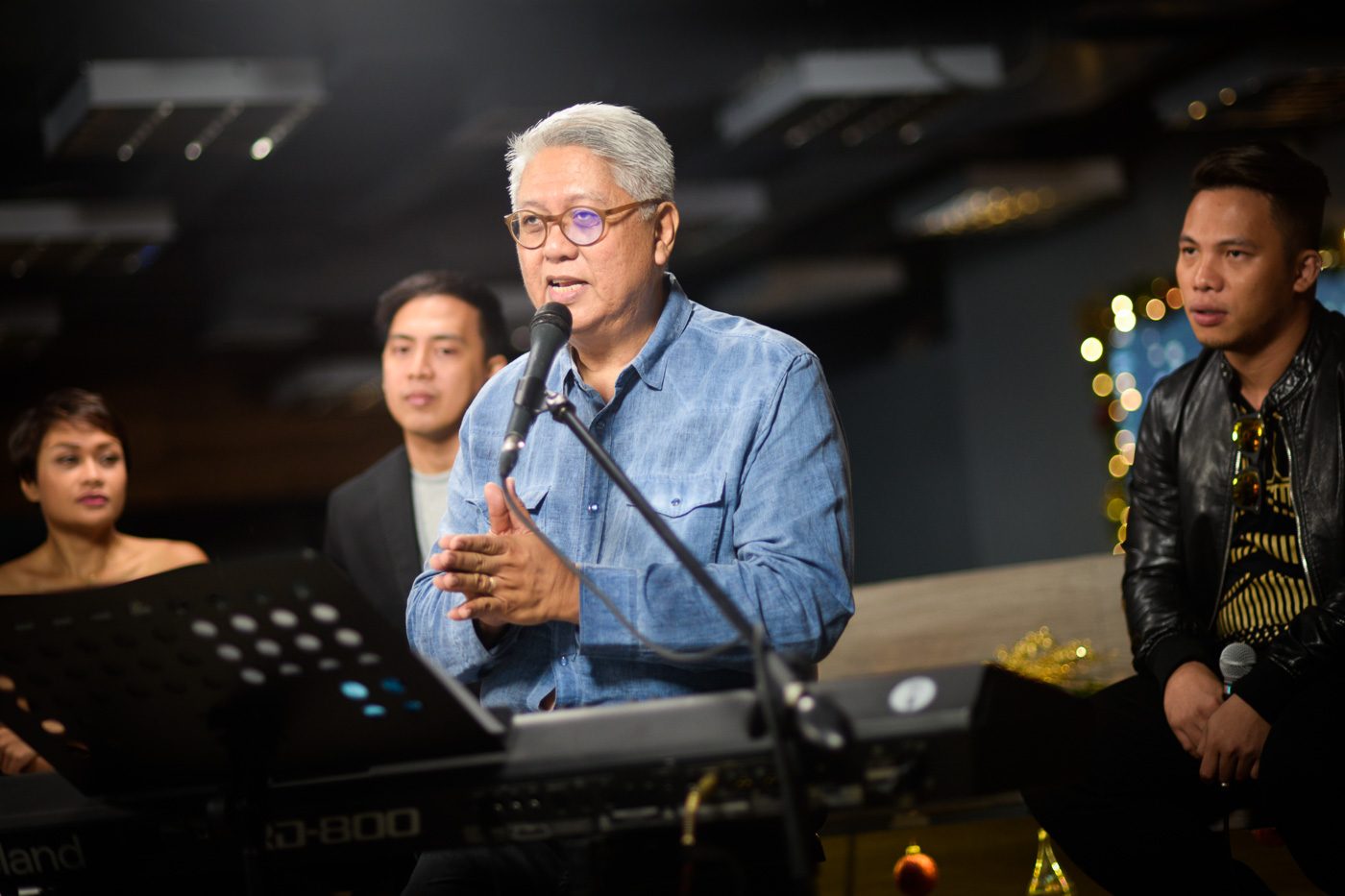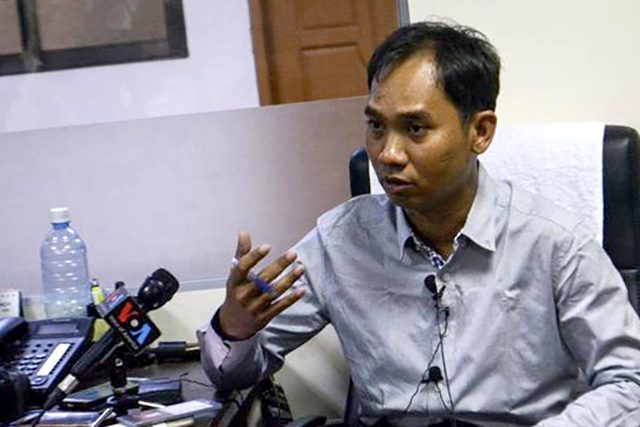SUMMARY
This is AI generated summarization, which may have errors. For context, always refer to the full article.

MANILA, Philippines – Filipino musician, composer, and conductor Ryan Cayabyab, known in the industry and beyond as Mr. C, and two journalists in Asia are among the awardees of the prestigious 2019 Ramon Magsaysay Awards.
The Ramon Magsaysay Award Foundation (RMAF) announced the 61st batch of awardees on Friday, August 2. (READ: By the numbers: Ramon Magsaysay Awardees)
“[Cayabyab] is being recognized for his compositions and performances that have defined and inspired Filipino popular music across generations,” said RMAF chairperson Jose Cuisia Jr. “[Cayabyab shows us that] music can indeed instill pride and joy and unify people across the many barriers that divide them,” he added.
The 65-year-old Cayabyab started writing music in the 1970s, getting his break when his song “Kay Ganda ng Ating Musika (How Beautiful is Our Music)” won the grand prize in the first Metro Manila popular music festival in 1978 and in an international song festival in South Korea in the same year.
He has had a stellar career in music since, writing music, conducting, and performing in many places in the Philippines and abroad. In 2018, Cayabyab was proclaimed National Artist of the Philippines for his contribution to Filipino music. (LISTEN: 8 popular Ryan Cayabyab songs)
Also an educator, Cayabyab is the president of The Music School of Ryan Cayabyab and served as a professor for the Department of Composition and Music Theory at the University of the Philippines in Diliman.
Cayabyab is also the executive director of the Philpop Music Fest Foundation, Inc., the group that organizes the Philippine Popular Music Festival. Through this he continuously puts forward major initiatives in music training, promoting Filipino music overseas, and fostering Filipino cultural identity through music.
Two journalists are also this year’s awardees: Ko Swe Win, editor-in-chief of Myanmar Now, and Ravish Kumar, executive director of the New Delhi Television Network in India.

Myanmar’s undaunted journalist
Swe Win “is being recognized for his undaunted commitment to practice independent, ethical and socially-engaged journalism in Myanmar.” Said Cuisia: “His incorruptible sense of justice and unflinching pursuit of the truth on crucial but under-reported issues, and his resolute insistence that it is in the quality and force of media’s truth-telling that we can convincingly protect human rights in the world.”
Myanmar Now is an independent online news site focused on long-form investigative pieces in both Burmese and English. Swe Win has criticized powerful, ultranationalist Buddhist monk Ashin Wirathu, who has rejected the stateless Rohingya as illegal immigrants and has spread hate speech against human rights activists.
For this, Swe Win has been facing defamation charges since 2017. In July that year, Swe Win was arrested at the Yangon International Airport as he was about to fly to Bangkok. He was then taken into police custody for the defamation charge brought by a follower of the ultranationalist monk.
Swe Win, who is from Yangon, has also had to travel over 1,000 km to Mandalay for court hearings. The International Commission of Jurists reports that these hearings, now totalling 55, have been at times stalled due to the non-appearance of plaintiffs.
Reporting on India’s scavengers
India’s Kumar is the senior executive director of the New Delhi Television Network (NDTV). He joined NDTV, one of India’s leading television networks, in 1996, and made his way up from being a field reporter.
Cuisia said Kumar “is being recognized for his unfaltering commitment to a professional, ethical journalism of the highest standards, his moral courage for standing up for truth, integrity and independence and his belief that it is in giving full, respectful voice to the voiceless in speaking truth bravely yet soberly to power that journalism fulfils its noblest aims to advance democracy.”
Kumar’s NDTV program, Prime Time, discusses under-reported problems of Indian society, such as the lives of manual scavengers and rickshaw-pullers, the plight of government employee, underfunded state schools, among others.
The 2 other 2019 Ramon Magsaysay Awardees are:
Angkhana Neelapaijit (Thailand). In 2006, Neelapaijit founded the Justice for Peace Foundation (JPF), a network of human rights and peace advocates that documents the human rights situation in southern Thailand. The foundation also helps provide legal assistance to victims of human rights violations and trains women on human rights and the peace process.
In 2015, Angkhana was named commissioner of the National Human Rights Commission of Thailand.
Kim Jong-ki (South Korea). After his own son committed suicide, Kim established the Foundation for Preventing Youth Violence (FPYV), which addresses school violence as a systemic social problem affecting students, families, school, and the community. For years, FPYV lobbied for government policy that would address the problem, until in 2004, a law on Prevention and Handling of School Violence was finally passed in South Korea.
The foundation partners with the Korean Ministry of Education, provding counseling and mediation services to help heal victims’ families, as well as reform bullies.
The 2019 Ramon Magsaysay Awards will be held at the Cultural Center of the Philippines on September 9.
The Ramon Magsaysay Award is given to persons who address issues of human development in Asia “with courage and creativity, and in doing so have made contributions that have transformed their societies for the better.”
It is regarded as Asia’s equivalent of the Nobel Prize. – Rappler.com
Add a comment
How does this make you feel?
There are no comments yet. Add your comment to start the conversation.